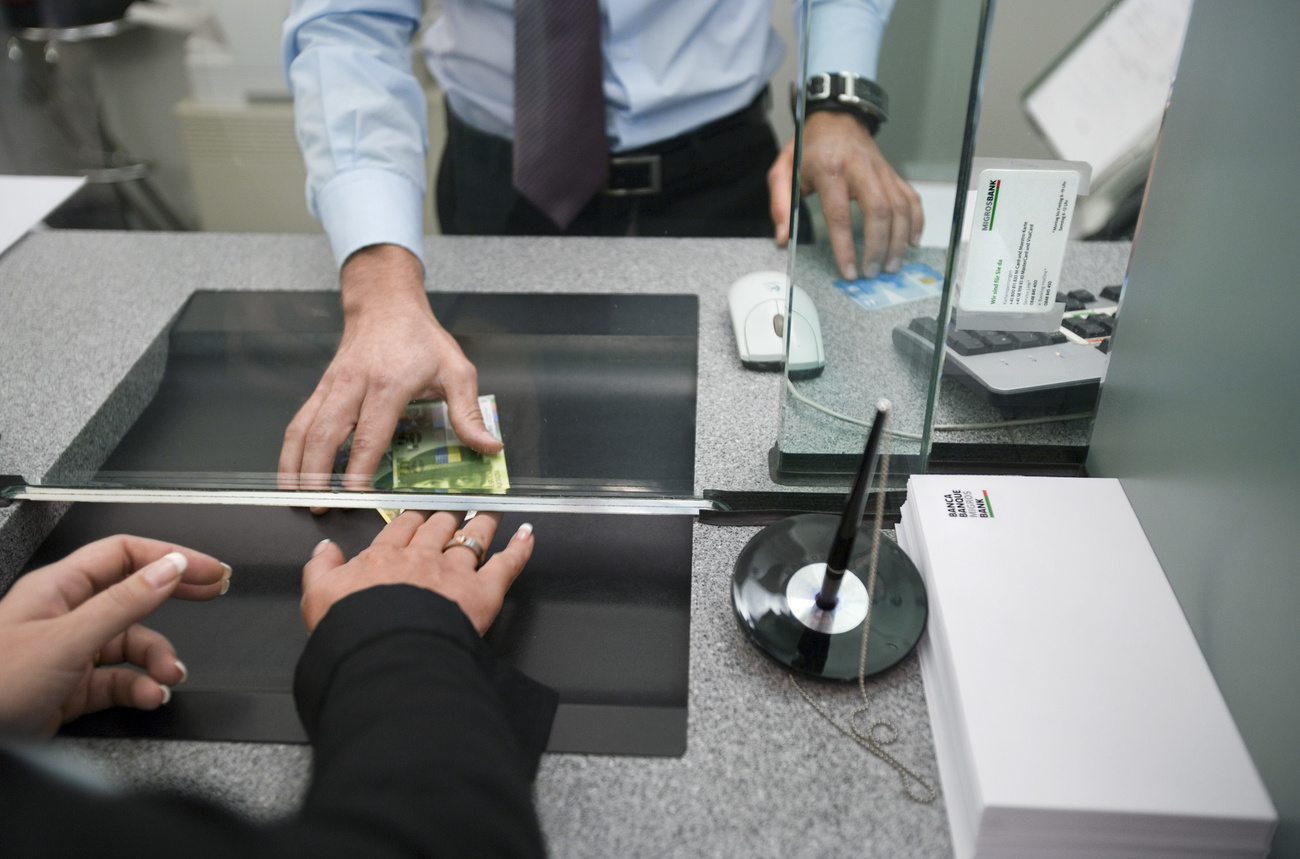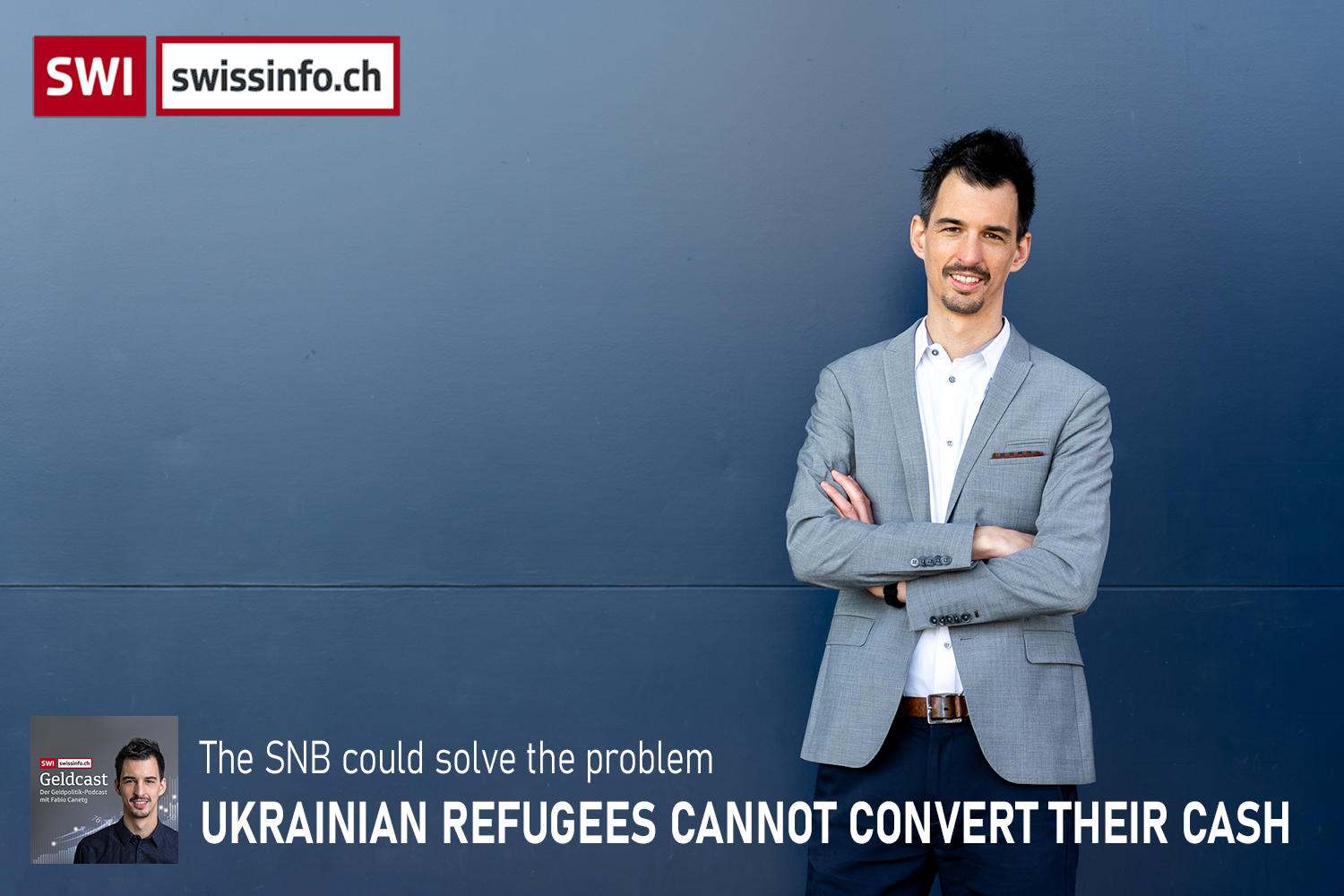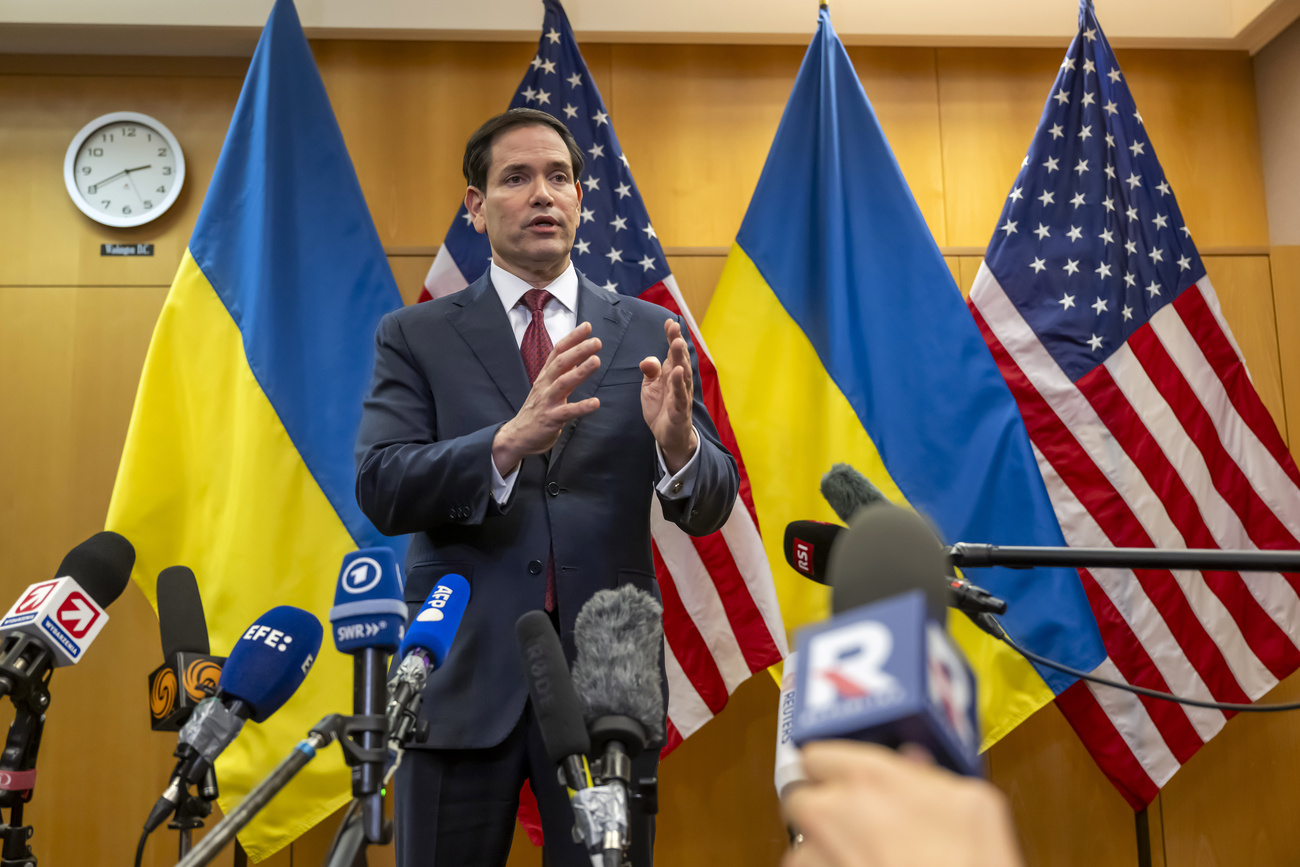
Switzerland ends emergency cash exchange system for Ukraine refugees

An arrangement between the central banks of Switzerland and Ukraine to allow refugees to exchange their hryvnia currency into francs has been discontinued.
The facility was set up in June after arriving refugees found that Swiss banks were unwilling to take their hryvnia in exchange for francs. Banks feared incurring losses as the franc gained in value against the Ukrainian currency.
Furthermore, the usual currency swap arrangement between the Swiss National Bank (SNB) and its Ukrainian counterpart were severely disrupted by the war.
In June, Switzerland set up the extraordinary exchange facility to allow refugees with special S status permits to exchange currencies at UBS or Credit Suisse to a maximum amount of CHF300 ($316).
But on Friday, the Swiss authorities announced that this system is to be terminated at the request of the National Bank of Ukraine (NBU), due to lack of demand.
“The reason for the discontinuation by the NBU is that demand for the arrangement has been very low in recent weeks,” read a statementExternal link. “Cashless payments to and from Ukraine continue to be ensured.”
Some 70,000 Ukrainians have fled to Switzerland since the Russian invasion, a number that is expected to swell to around 85,000.

More
Geldcast update: Ukrainian refugees cannot exchange cash for Swiss francs

In compliance with the JTI standards
More: SWI swissinfo.ch certified by the Journalism Trust Initiative




























You can find an overview of ongoing debates with our journalists here . Please join us!
If you want to start a conversation about a topic raised in this article or want to report factual errors, email us at english@swissinfo.ch.